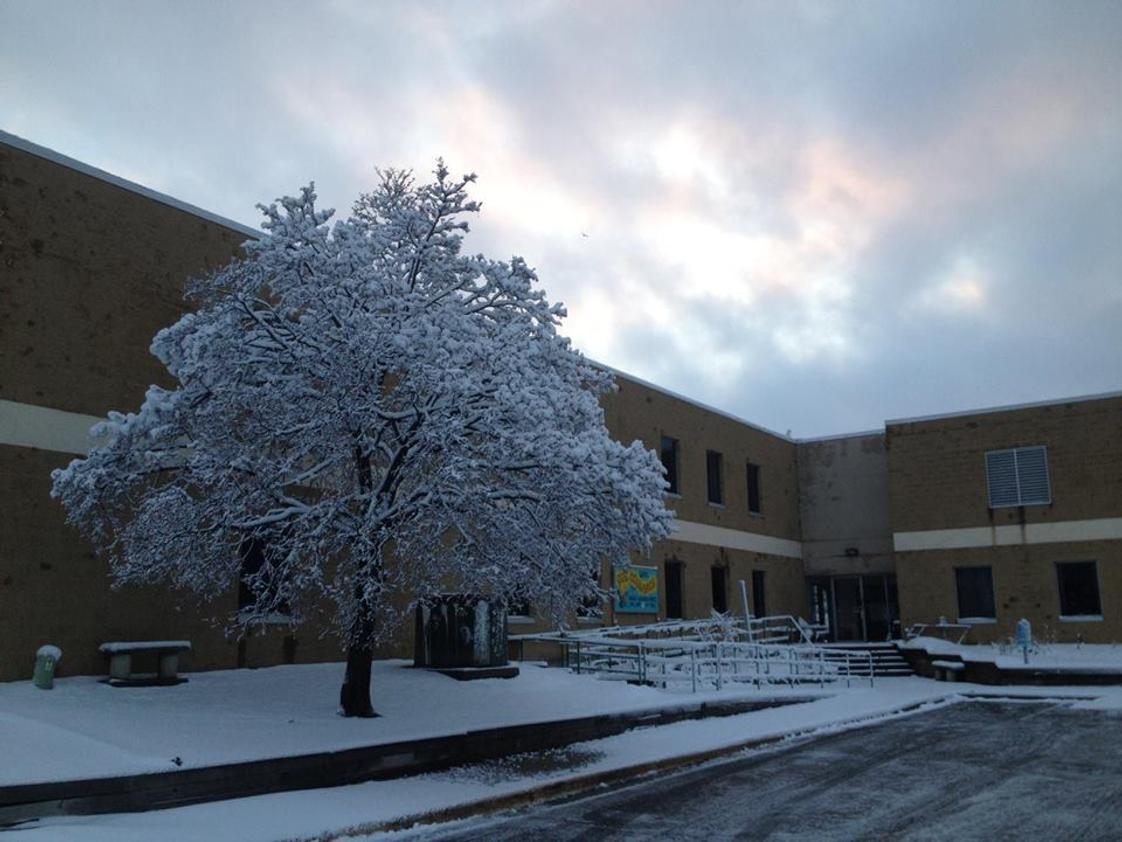Serving 401 students in grades 7-12, Great River School ranks in the top 50% of all schools in Minnesota for overall test scores (math proficiency is bottom 50%, and reading proficiency is bottom 50%).
The percentage of students achieving proficiency in math is 30-34% (which is lower than the Minnesota state average of 45%). The percentage of students achieving proficiency in reading/language arts is 70-74% (which is higher than the Minnesota state average of 51%).
The student:teacher ratio of 13:1 is equal to the Minnesota state level of 13:1.
Minority enrollment is 27% of the student body (majority Black and Hispanic), which is lower than the Minnesota state average of 39% (majority Black and Hispanic).
Quick Stats (2025)
- School Type: Charter School
- Grades: 7-12
- Enrollment: 401 students
- Student:Teacher Ratio: 13:1
- Minority Enrollment: 27%
- Graduation Rate: 90-94% (Top 10% in MN)
- Overall Testing Rank: Top 50%
- Math Proficiency: 30-34% (Btm 50%)
- Reading Proficiency: 70-74% (Top 5%)
- Science Proficiency: 35-39% (Btm 50%)
- Source: National Center for Education Statistics (NCES), MN Dept. of Education
Top Rankings
Great River School ranks among the top 20% of public schools in Minnesota for:
Category
Attribute
Reading/Language Arts Proficiency
Graduation Rate
School Overview
Great River School's student population of 401 students has grown by 12% over five school years.
The teacher population of 31 teachers has grown by 29% over five school years.
School Type
Grades Offered
Grades 7-12
Total Students
401 students
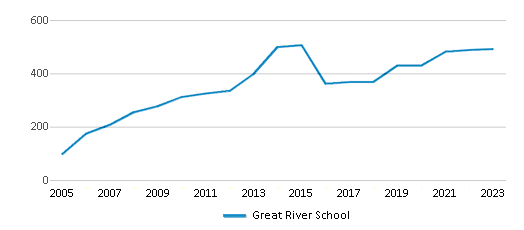
Gender %
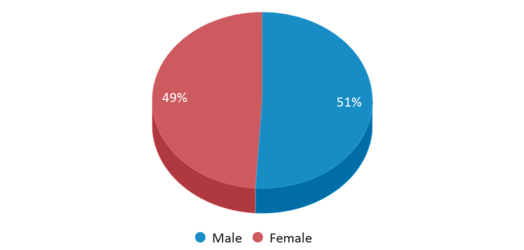
Total Classroom Teachers
31 teachers
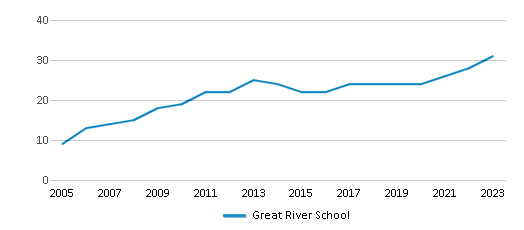
Students by Grade
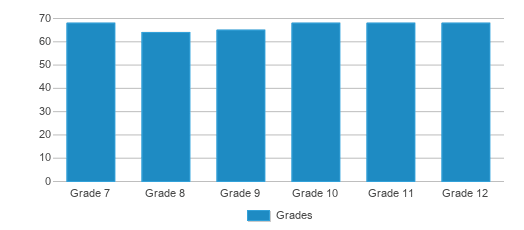
School Rankings
Great River School ranks within the top 50% of all 1,860 schools in Minnesota (based off of combined math and reading proficiency testing data).
The diversity score of Great River School is 0.45, which is less than the diversity score at state average of 0.59. The school's diversity has stayed relatively flat over five school years.
Overall Testing Rank
#596 out of 1860 schools
(Top 50%)
(Top 50%)
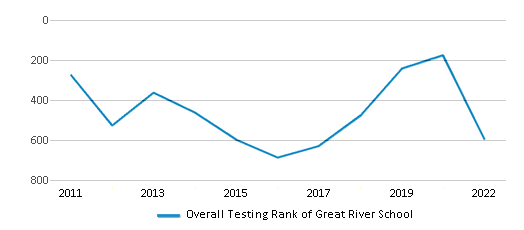
Math Test Scores (% Proficient)
30-34%
45%
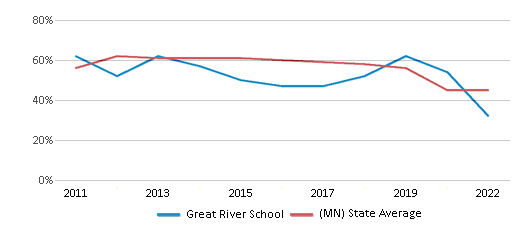
Reading/Language Arts Test Scores (% Proficient)
70-74%
51%
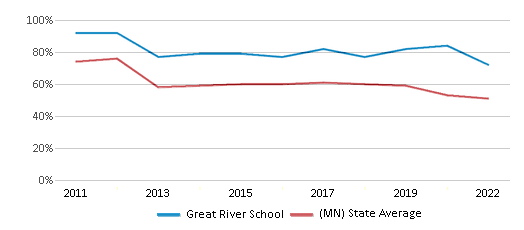
Science Test Scores (% Proficient)
35-39%
41%
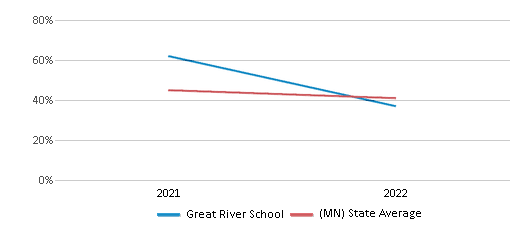
Student : Teacher Ratio
13:1
13:1
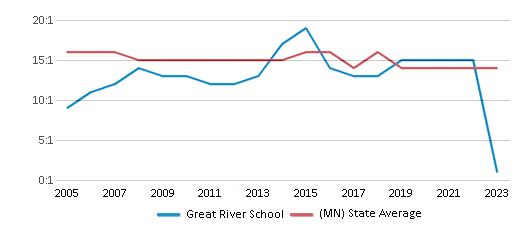
American Indian
n/a
2%
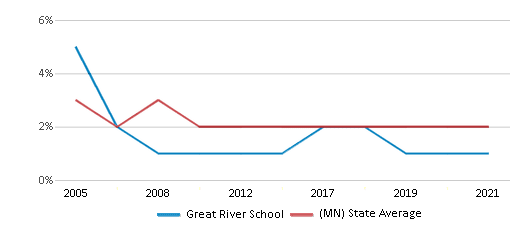
Asian
6%
7%
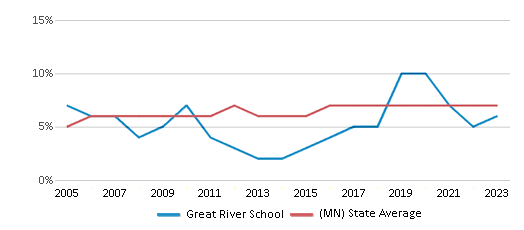
Hispanic
7%
12%
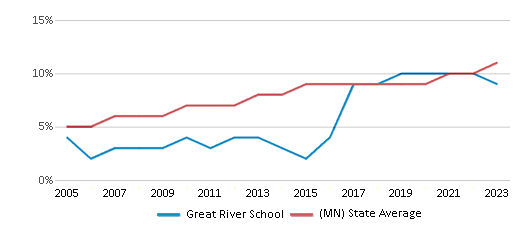
Black
7%
12%
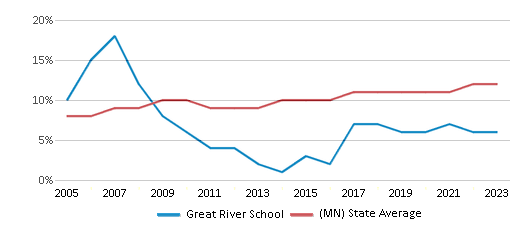
White
73%
61%
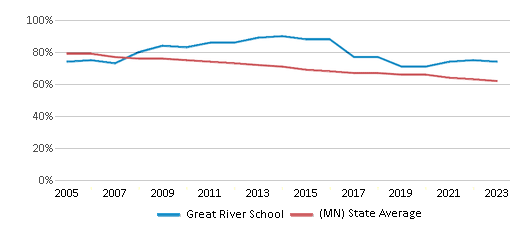
Hawaiian
n/a
n/a
Two or more races
7%
6%
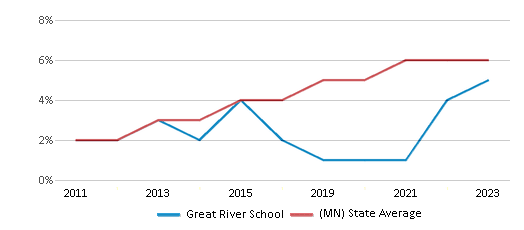
All Ethnic Groups
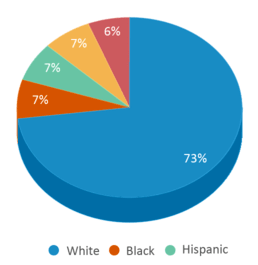
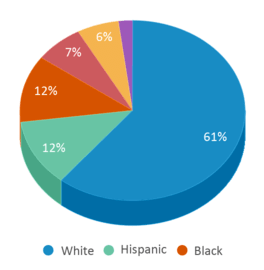
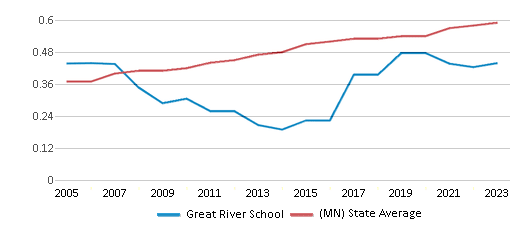
Graduation Rate
90-94%
84%
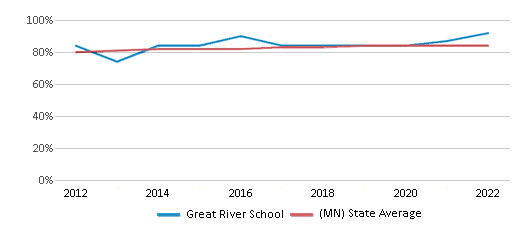
Eligible for Free Lunch
21%
36%
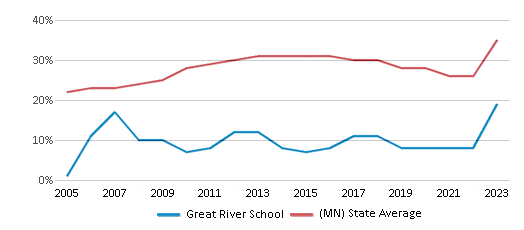
Eligible for Reduced Lunch
3%
7%
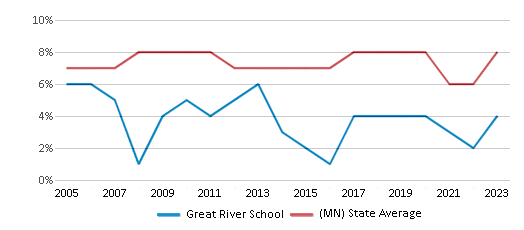
School Statewide Testing
School District Name
Sports
Total Sports Offered
8 sports
Sports
Basketball, Cheering, Cross Country, Football, Ice Hockey, Soccer, Ultimate Frisbee, Volley Ball
Extracurriculars
Total ExtracurricularsTotal Extra-curric.
5 extracurriculars
ExtracurricularsExtra-curric.
FIRST Lego League, FIRST Robotics
Club or Organization:
Gay Straight Alliance
Arts and Music Programs:
Spring Music Performance, Theatre
Club or Organization:
Gay Straight Alliance
Arts and Music Programs:
Spring Music Performance, Theatre
Source: National Center for Education Statistics (NCES), MN Dept. of Education
School Notes
- Great River School integrates academic and social experiences in an environment of civility and trust. The Montessori philosophy and the International Baccalaureate diploma program inform the curriculum and pedagogy, inspiring deep questioning and peaceful action.Great River School fosters self-expression in a supportive environment that values critical thinking and the richness and strength of a diverse community.Great River School encourages students to seek new challenges and explore their abilities. Instruction through travel, practical learning, the arts, and micro-economic ventures provide relevant skills to meet the world with compassion and a sense of responsibility.
Profile last updated: 02/09/2025
Frequently Asked Questions
What is Great River School's ranking?
Great River School is ranked #596 out of 1,860 schools, which ranks it among the top 50% of public schools in Minnesota.
What schools are Great River School often compared to?
Great River Schoolis often viewed alongside schools like Avalon School by visitors of our site.
What percent of students have achieved state testing proficiency in math and reading?
30-34% of students have achieved math proficiency (compared to the 45% MN state average), while 70-74% of students have achieved reading proficiency (compared to the 51% MN state average).
What is the graduation rate of Great River School?
The graduation rate of Great River School is 90-94%, which is higher than the Minnesota state average of 84%.
How many students attend Great River School?
401 students attend Great River School.
What is the racial composition of the student body?
73% of Great River School students are White, 7% of students are Black, 7% of students are Hispanic, 7% of students are Two or more races, and 6% of students are Asian.
What is the student:teacher ratio of Great River School?
Great River School has a student ration of 13:1, which is equal to the Minnesota state average of 13:1.
What grades does Great River School offer ?
Great River School offers enrollment in grades 7-12
What school district is Great River School part of?
Great River School is part of Great River School District.
In what neighborhood is Great River School located?
Great River School is located in the Como Park neighborhood of Saint Paul, MN. There are 10 other public schools located in Como Park.
School Reviews
Review Great River School. Reviews should be a few sentences in length. Please include any comments on:
- Quality of academic programs, teachers, and facilities
- Availability of music, art, sports and other extracurricular activities
Recent Articles

What Is A Charter School?
Explore the world of charter schools in this comprehensive guide. Learn about their history, how they operate, and the pros and cons of this educational innovation. Discover key facts about charter schools, including admission policies, demographics, and funding, as well as what to look for when considering a charter school for your child.

10 Reasons Why High School Sports Benefit Students
Discover the 10 compelling reasons why high school sports are beneficial for students. This comprehensive article explores how athletics enhance academic performance, foster personal growth, and develop crucial life skills. From improved fitness and time management to leadership development and community representation, learn why participating in high school sports can be a game-changer for students' overall success and well-being.

February 05, 2025
Understanding the U.S. Department of Education: Structure, Impact, and EvolutionWe explore how the Department of Education shapes American education, from its cabinet-level leadership to its impact on millions of students, written for general audiences seeking clarity on this vital institution.


